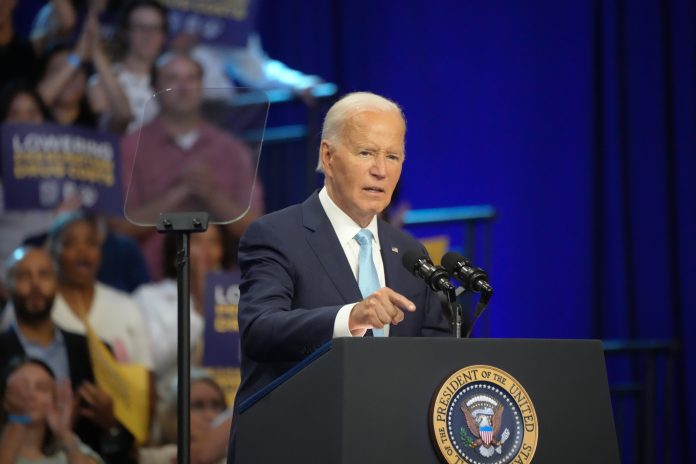The Biden administration has confirmed significant tariff hikes on Chinese imports, including a 100% duty on electric vehicles (EVs), to protect domestic industries from China’s state-driven excess production capacity. The U.S. Trade Representative (USTR) announced that the tariffs, including a 50% duty on solar cells and a 25% duty on steel, aluminum, EV batteries, and key minerals, will take effect on September 27.
A notable aspect of the tariff changes is the inclusion of Chinese semiconductors, with a 50% tariff set to begin in 2025. Additionally, tariffs on lithium-ion batteries and related components, critical for EV production, will increase to 25%, despite pleas from the auto industry to lower them due to heavy reliance on Chinese supplies.
According to Lael Brainard, White House economic adviser, these “tough, targeted” tariffs are necessary to reduce the U.S. EV industry’s dependence on China’s supply chain, which has gained an unfair cost advantage in global markets. The 100% tariff on Chinese EVs is designed to counteract this, preventing China from dominating U.S. auto markets as it has in other regions.
China has condemned these tariff increases as “bullying” and claims its EV industry’s success is driven by innovation rather than government support. This move by the U.S. coincides with efforts by Vice President Kamala Harris and former President Donald Trump to present strong stances on China as part of their respective campaigns in auto-producing states ahead of the upcoming presidential election. Trump has proposed a 60% tariff on all Chinese imports.
In parallel, other nations such as the European Union and Canada also increased tariffs on Chinese EV imports, with Canada matching the 100% U.S. duties.
The USTR decision also includes some adjustments, such as delayed tariffs on Chinese-made medical face masks and syringes and a temporary exclusion for Chinese port cranes ordered before May 2026. Despite these revisions, the administration’s overarching strategy remains focused on securing the future of U.S. strategic industries like EVs, solar, and semiconductors.



